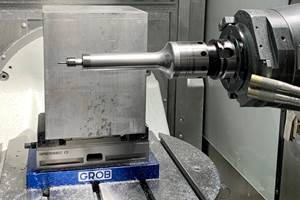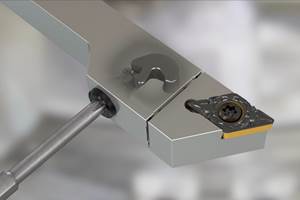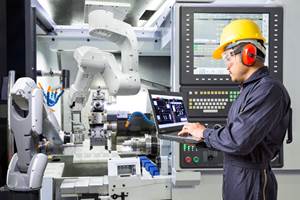Wire EDM Improves Throughput, Surface Finish
This manufacturer insulates itself from global competitors by focusing on high-quality products across a range of industries. Just as important, however, is routine investment in new technology. The company’s latest acquisition, the AC Progress VP2 wire EDM from GF AgieCharmilles, has significantly reduced cycle time and improved throughput on the company’s precision stamping dies.
Share




For many American manufacturers, the threat of overseas competition merits constant attention. In fact, many plan their operations with an eye toward maintaining a competitive position relative to foreign manufacturers. One such company is Precision Stampings, Inc. (PSi).
Among other strategies, a commitment to routinely investing in new technology for the production of high-quality parts has helped PSi become a model of how an American manufacturer can succeed in the global market. The company’s most recent purchase, the AC Progress VP2 wire EDM from GF AgieCharmilles, is representative of that commitment. Since installation last year, the machine has significantly improved accuracy and throughput, contributing to the company’s goal of maintaining competitiveness.
Headquartered in Beaumont, California and founded in 1966, PSi specializes in precision stamping of micro-miniature and miniature components for the automotive, medical, defense, electronics and hardware industries. Pursuing and procuring work from customers in such a diverse range of industries helps insulate the company from the impact of a negative turn in any particular sector, whether from outsourcing, product obsolescence or larger economic factors. Additionally, most of its work involves parts with high accuracy and quality requirements, which tend to be poor candidates for outsourcing.
This approach has led to consistent, long-term success for PSi, as evidenced by its significant expansion during the past 15 years. During that time period, the company expanded its 24,000-square-foot California operation into a 36,000-square-foot facility and established another 10,000-square-foot
satellite facility in Concord, North Carolina. However, just as important to PSi’s success has been its focus on using the latest technological innovations to improve productivity and reduce per-part labor costs. In fact, the company spends an average of $1 million per year on upgrading its capabilities.
That mindset led the company to adopt wire EDM in place of the grinding operations it previously used to create dies. On average, the move to EDM eliminated two to three weeks of turnaround time to machine a die, which previously took anywhere from 10 to 12 weeks. EDM also improved product life, raising the company’s standard from 1 million hits per die to 3 million.
By the time the company began evaluating the AG Progress VP2 in 2009, the Beaumont facility already employed four other GF AgieCharmilles wire EDMs: an Agie Elox Mondo 2, an Agiecut 250HSS and two Agiecut Excellences. The integration of these machines provided the capability to complete a wider variety of work and expand the customer base. Nonetheless, initial test cutting on the VP2 convinced management that the new machine represented a significant step forward from the previous generation EDMs.
"The VP2 runs circles around the Agie Excellence machines we’ve had since 2000," says Michael Thiebaud, EDM technician. "On one specific part program, total cutting time dropped from 38 minutes to 23 minutes. On top of that, the VP2 provides better surface finish with fewer trim passes compared to the older machines."
These improvements are attributable in part to the machine’s IPG-VPC dual generator, which includes four power modules and other design features that provide a very fine spark gap. According to the manufacturer, this both reduces power consumption and expands the machine’s capabilities for complex part geometries and fine surface finishes. The VP2 can accommodate wire sizes ranging from 0.006- to 0.013-inch, with a minimum wire size of 0.002 inch available as an option.
One feature Mr. Thiebaud cites as particularly beneficial is the machine’s Smart Threading option, which enables automatic threading of wires with diameters of less than 0.004 inch through holes that measure only 0.002 inch larger than the wire. For a typical 18- by 8-inch die at PSi, which might contain as many as 200 start holes, each with a diameter of 0.005 inch, automatic threading provides significant throughput savings.
"The automatic wire threading really comes into play when we’re cutting a part with multiple cavities," he says. "We’ve seen reduced times for just about every aspect of the machine’s operation, and parts are coming off with tolerances held to ±0.00005 inch. We really couldn’t ask for a better combination of speed and accuracy."
Related Content
High RPM Spindles: 5 Advantages for 5-axis CNC Machines
Explore five crucial ways equipping 5-axis CNC machines with Air Turbine Spindles® can achieve the speeds necessary to overcome manufacturing challenges.
Read MoreHow to Determine the Currently Active Work Offset Number
Determining the currently active work offset number is practical when the program zero point is changing between workpieces in a production run.
Read MoreQuick-Change Tool Heads Reduce Setup on Swiss-Type Turning Centers
This new quick-change tooling system enables shops to get more production from their Swiss turning centers through reduced tool setup time and matches the performance of a solid tool.
Read More6 Machine Shop Essentials to Stay Competitive
If you want to streamline production and be competitive in the industry, you will need far more than a standard three-axis CNC mill or two-axis CNC lathe and a few measuring tools.
Read MoreRead Next
5 Rules of Thumb for Buying CNC Machine Tools
Use these tips to carefully plan your machine tool purchases and to avoid regretting your decision later.
Read MoreRegistration Now Open for the Precision Machining Technology Show (PMTS) 2025
The precision machining industry’s premier event returns to Cleveland, OH, April 1-3.
Read MoreSetting Up the Building Blocks for a Digital Factory
Woodward Inc. spent over a year developing an API to connect machines to its digital factory. Caron Engineering’s MiConnect has cut most of this process while also granting the shop greater access to machine information.
Read More
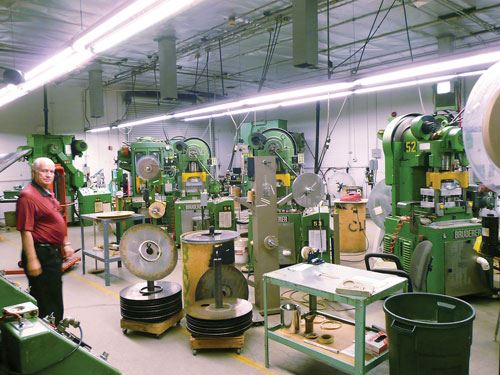
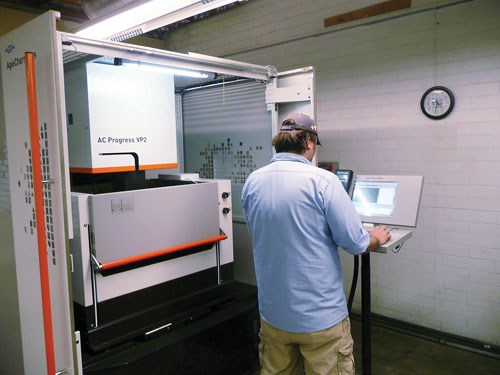
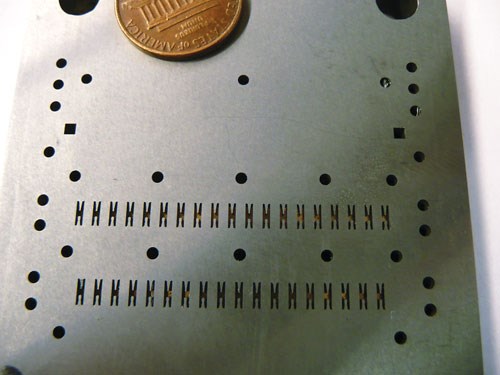
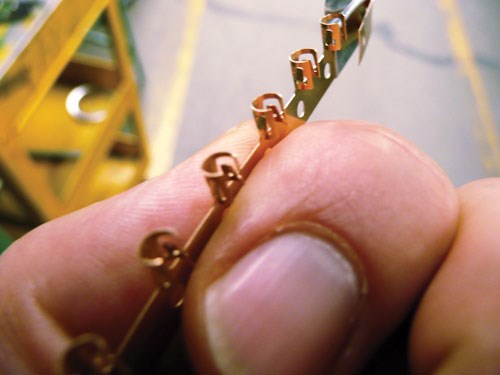
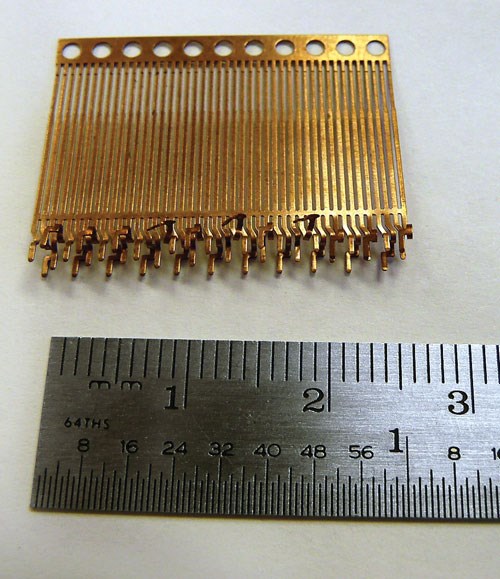





















.jpg;maxWidth=300;quality=90)





